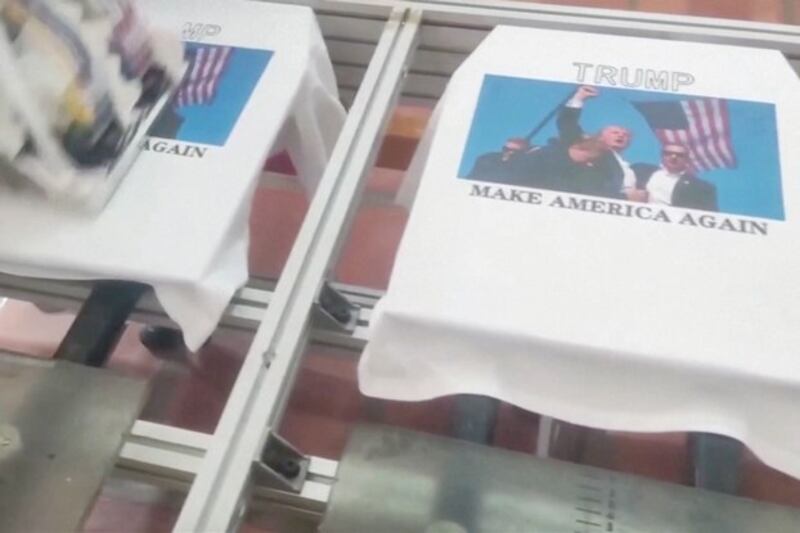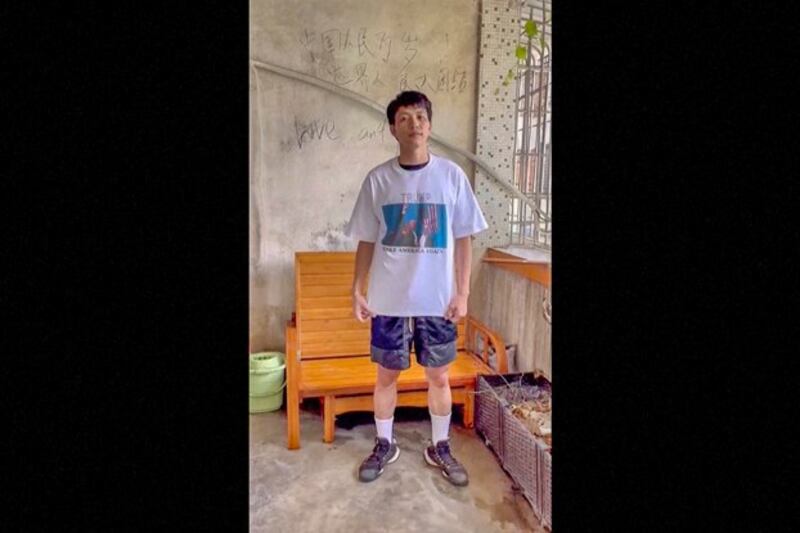Chinese Communist Party leader Xi Jinping has extended his "sympathies"' to former U.S. President Donald Trump following a suspected assassination attempt at a political rally at the weekend that has sparked widespread comment on Chinese social media platforms.
"China is following the shooting incident at the campaign rally of former U.S. President Donald Trump," a foreign ministry spokesperson said in a statement on Sunday. "President Xi Jinping has expressed sympathies to former President Trump."
State media in China was silent in the first few hours after the attack, which left the shooter and a rally attendee dead and Trump with an injury to one ear, but has since covered the incident and its aftermath in great detail.
Both Xinhua news agency and state broadcaster CCTV have published frequent updates since the shooting at the Republican campaign rally in Butler, Pennsylvania at around 6 p.m. on Saturday.
The gunman shot at Trump with a rifle on Saturday from a rooftop about 130 meters (430 feet) from where the former president was speaking at the rally, amid questions around how he was able to gain access.
Xinhua on Sunday published a timeline with a detailed account of the attack, which left two others critically injured, and the response by law enforcement.
'Not surprising'
Government censors didn't appear to be blocking online discussion of the shooting, which was trending on Sina Weibo immediately after the news broke.
Some social media users were reminded of the July 2022 assassination of former Japanese prime minister and representative Shinzo Abe, who was shot dead while speaking in support of the Liberal Democratic Party at a political rally in Nara city.
Blogger "Host Hu Yang" commented that a growing gap between rich and poor in the United States had given rise to political extremism and intensified ethnic conflict.
"It's not surprising that such a thing could happen in today's United States," Hu wrote. "Culture wars, the gap between rich and poor, political extremism and ... intensified racial conflict have been tearing American society apart for years."
Hu described the shooting as "a microcosm of the state of social values in the United States."

Some commentators thought the apparent assassination attempt would only bolster Trump’s popularity ahead of the presidential election.
Blogger "Lao Zhao Chats About Business" said growing U.S. nationalism would make Trump a formidable opponent on the international stage.
"They may be entering an era where the prestige of their leader is extremely high, internal unity is very strong, and the people are full of confidence, which will greatly strengthen our opponent," the blogger said in a reference to the United States.
The blogger said Trump would make a "very strong" president, and that he expected the current Sino-U.S. trade war to intensify if he is elected in November.
Normal diplomatic protocol
Xia Ming, a politic science professor at the College of Staten Island, City University of New York, said Xi Jinping's message after the attack on Trump was a part of normal, regular diplomatic protocol in China, but also showed the Xi administration was taking no chances.
"Xi Jinping's approach is to hedge his bets by discrediting the U.S. democratic system and touting the superiority of the Chinese system on the one hand, and using relationship diplomacy to give the impression of personal friendship with a potential future U.S. leader," Xia told RFA in an interview on Monday.
He said Beijing has no political reason to limit online discussion and speculation about the shooting, especially as it diverts public attention away from poor economic figures as China's leaders meet behind closed doors to try to rescue the flagging economy.

"What the Chinese Communist Party fears most is the truth, so it creates a fictional narrative about the United States, and invites its scholars and experts to help brainwash people, so [Chinese] people are actually a long way off when it comes to discussing the [shooting]," Xia said.
Veteran political commentator Hu Ping agreed.
"This topic is already very hot, and it's not easy to control it," Hu said. "It has no direct relationship with the so-called political security of the Chinese Communist Party, so they think it's okay to let it happen."
"It's actually good for them if everyone hypes this story, because they'll have less to say about China's own problems, such as the [recent] floods and the third plenum," he said. "They can use it to divert people's attention."
Among the smorgasbord of conspiracy theories on offer on social media is the suggestion that the attack on Trump was carried out by the U.S. "deep state," in a bid to scupper his election chances.
Xi's foreign policy adviser Jin Canrong, who is a professor at the School of International Relations at Beijing's Renmin University, repeated that theory in recent comments to the "Observer Net" media site.
"American politics is actually controlled by Wall Street," Jin said. "The deep state controlled by Wall Street will never allow Trump to come to power."
"They were careless in 2016, but they can't afford to make the same mistake again," he said.
Translated by Luisetta Mudie. Edited by Roseanne Gerin.
